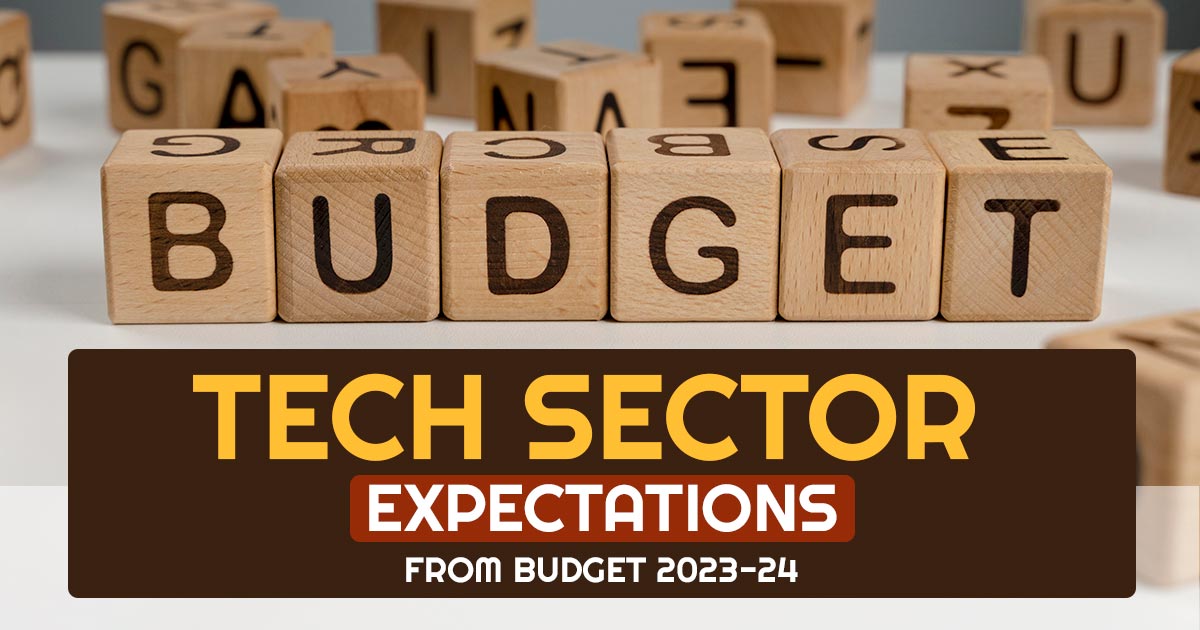
In the present geopolitically unstable times, India is projected to become even more appealing as an investment location with the Union Budget 2023-24 announcements on February 1. The development of the information technology industry will probably play a significant role in achieving this objective. In 2023, information technology investment in India is expected to increase by 2.6%, driven mostly by a strong 13.7% increase in software sector spending, according to a new Gartner prediction.
Reduction in the Present Corporate Tax
Given that such enterprises may quickly expand up to be global, as has been demonstrated in many instances, the technology sector is one where the victor gets it all. India has to make its technology industry as competitive as it can be in a highly connected world, even while access to venture money is much easier than it was in the past.
The worldwide minimum tax rate, which most countries have agreed upon, is 15%; the current corporation tax rate is 22% (before surcharge and cess). A decrease in the corporation tax rate for all enterprises will assist Indian companies to become more competitive and increase their share of the global market.
The capital gains tax scheme in place right now is complicated, with different tax rates, different classifications as per the holding term, etc. According to statements made by members of the finance ministry, the administration intends to simplify the system. Uniformity might help with this, and if done so with consultation, it would be a positive step.
The limitations on claiming a refund of GST paid on capital items create a major financial barrier. The acceptance of such reimbursements to taxpayers who are exempt from paying GST on services they export has long been a demand.
Tax and GST Compliance Simplification
The government has over the years established a wide range of withholding tax measures with varying rates, thresholds, and overlaps in coverage in an effort to continually broaden the tax base. Consequently, there is a pressing need to streamline the withholding tax system. The government might gradually eliminate the necessity to deduct taxes from citizens’ payments as information is now freely accessible to tax authorities thanks to advancements in digitization. Other nations in which people are paid do not require withholding responsibilities.
Additionally, some controversial elements in the tax audit report might be removed to provide relief. Due to the requirement for extensive information that is challenging to extract from the ERP systems of the majority of taxpayers, the recently enforced GST provision has significantly increased the burden on both the auditor and the taxpayer. Since tax auditors are unable to conduct extensive examinations of both the records of the taxpayer and other parties to arrangements, the GAAR clause’s intended outcome is not realized.
Clear Controversy from Administration
Many people have praised the steps the government has taken in recent years to settle tax disputes. It would be easier to attain certainty if steps were made to expedite proceedings, such as establishing deadlines for appellate agencies to resolve cases.
Read Also: Salaried Individuals Expect More Tax Relief Budget 2023-24
Three benches of the Board for Advance Rulings were informed by the government more than a year ago, but none of them has yet to start working. The effectiveness of the Board should be guaranteed. The Advance Pricing Agreement mechanism could be strengthened by establishing deadlines for case closure, enhancing the APA administration, standardizing resolutions for frequent problems, suspending transfer pricing assessments during the APA process, conducting proceedings online, and other measures.
Need Clarification Related to International Tax
Lower margins should be mandated and safe harbours for transfer pricing must be made available to the assessee with more revenue compared to the existing ceiling of Rs 200 crore. By increasing safe harbour adoption, these modifications would contribute to a reduction in tax disputes.
Regarding several uncertainties in the application of substantial economic presence (SEP) regulations, guidance should be given.
When the sole revenues from India are certain dividends, interest, royalties, or fees for technical services, and taxes have been withheld at domestic tax law rates, non-residents are excluded from submitting tax reports in India. It must be made clear why transfer pricing compliance is not necessary for certain circumstances.